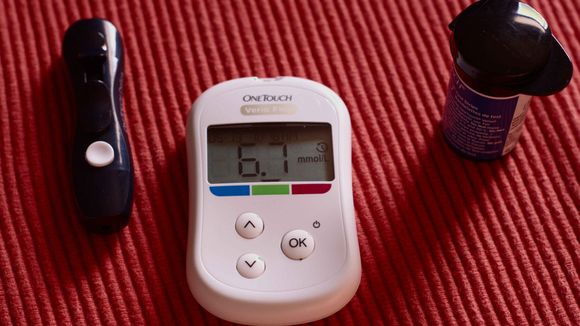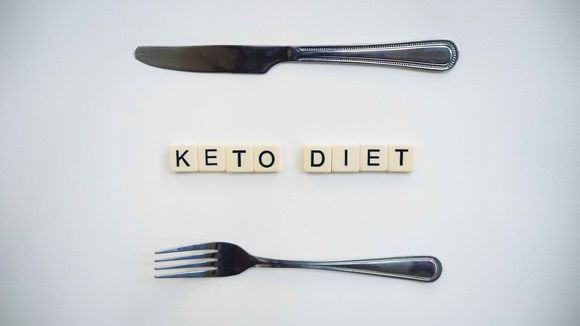What is the Ketogenic Diet?
The ketogenic diet is a low-carb, high-fat, and moderate-protein diet that has gained popularity in recent years for its weight loss and health benefits. The primary goal of the ketogenic diet is to induce a metabolic state known as ketosis, in which the body uses ketones produced from fat breakdown as the primary source of energy, rather than glucose from carbohydrates.
Potential Health Benefits
- Weight loss: The ketogenic diet has been shown to be an effective tool for weight loss. By reducing carbohydrate intake, the body is forced to burn fat for fuel, which can result in significant weight loss (1).
- Type 2 diabetes: A ketogenic diet can help regulate blood sugar levels, as it lowers the amount of glucose in the bloodstream. This can be particularly beneficial for individuals with type 2 diabetes, and some studies have shown that it can even help reverse the disease (2).
- Epilepsy: The ketogenic diet was originally developed in the 1920s as a treatment for epilepsy, and it continues to be an effective therapy for children and adults with drug-resistant epilepsy (3).
- Neurodegenerative diseases: Research suggests that the ketogenic diet may have a protective effect on the brain, potentially reducing the risk of neurodegenerative diseases such as Alzheimer's and Parkinson's (4).
- Cancer: Preliminary research indicates that a ketogenic diet may slow the growth of cancer cells and improve the efficacy of conventional cancer treatments (5).
(1)Paoli, A., Rubini, A., Volek, J. S., & Grimaldi, K. A. (2013). Beyond weight loss: a review of the therapeutic uses of very-low-carbohydrate (ketogenic) diets. European Journal of Clinical Nutrition, 67(8), 789–796. https://doi.org/10.1038/ejcn.2013.116 (2)Hallberg, S. J., McKenzie, A. L., Williams, P. T., Bhanpuri, N. H., Peters, A. L., Campbell, W. W., Hazbun, T. L., Volk, B. M., McCarter, J. P., Phinney, S. D., & Volek, J. S. (2018). Effectiveness and safety of a novel care model for the management of type 2 diabetes at 1 year: An open-label, non-randomized, controlled study. Diabetes Therapy, 9(2), 583–612. https://doi.org/10.1007/s13300-018-0373-9 (3)Neal, E. G., Chaffe, H., Schwartz, R. H., Lawson, M. S., Edwards, N., Fitzsimmons, G., Whitney, A., & Cross, J. H. (2008). The ketogenic diet for the treatment of childhood epilepsy: a randomised controlled trial. The Lancet Neurology, 7(6), 500–506. https://doi.org/10.1016/S1474-4422(08)70092-9 (4)Kashiwaya, Y., Takeshima, T., Mori, N., Nakashima, K., Clarke, K., & Veech, R. L. (2000). D-β-Hydroxybutyrate protects neurons in models of Alzheimer’s and Parkinson’s disease. Proceedings of the National Academy of Sciences, 97(10),

Photo by Kate on Unsplash
Delicious Keto Recipes
Keto Avocado and Egg Salad
Ingredients:
- 2 ripe avocados
- 4 hard-boiled eggs
- ¼ cup mayonnaise
- 2 tablespoons chopped fresh cilantro
- 1 tablespoon lime juice
- Salt and pepper to taste
Instructions:
- Peel and dice the avocados and hard-boiled eggs.
- In a large bowl, combine the avocados, eggs, mayonnaise, cilantro, and lime juice.
- Season with salt and pepper to taste.
- Mix well and serve chilled.

Photo by Art Rachen on Unsplash
Keto Chicken and Spinach Alfredo
Ingredients:
- 1 lb boneless, skinless chicken breasts
- 2 cups spinach
- 1 cup heavy cream
- 1 cup grated Parmesan cheese
- 2 tablespoons butter
- Salt and pepper to taste
Instructions:
- Season chicken breasts with salt and pepper.
- In a large skillet, melt butter and cook chicken breasts until fully cooked.
- Remove chicken from skillet and set aside.
- In the same skillet, add heavy cream and bring to a simmer.
- Stir in Parmesan cheese until fully incorporated.
- Add spinach and cook until wilted.
- Return chicken to skillet and cook for an additional 2-3 minutes to reheat.
- Serve hot.
Questions and Answers
Q: How long does it take to enter ketosis?
A: It typically takes 2-4 days to enter ketosis, depending on individual factors such as metabolism, exercise, and carbohydrate intake.
Q: Can I exercise while on the ketogenic diet?
A: Yes, you can exercise while following a ketogenic diet. However, you may need to adjust your workout routine and intensity, especially during the initial stages of the diet when your body is adapting to using fat for fuel.
Q: Is the ketogenic diet suitable for vegetarians or vegans?
A: Although the ketogenic diet is typically high in animal products, it is possible to follow a vegetarian or vegan version by focusing on plant-based fats, such as avocados, nuts, seeds, and plant-based oils, and consuming adequate amounts of plant-based protein sources like tofu and tempeh.
Q: Are there any side effects of the ketogenic diet?
A: Some people may experience side effects during the initial stages of the diet, known as the "keto flu." Symptoms may include headache, fatigue, dizziness, and gastrointestinal discomfort. However, these side effects usually subside within a few days as the body adapts to the new way of producing energy.
Q: Can I drink alcohol on the ketogenic diet?
A: Consuming moderate amounts of low-carb alcoholic beverages, such as dry wine or spirits with no added sugars, is generally acceptable on the ketogenic diet. However, it's essential to be mindful of the additional calories and potential impact on ketosis when consuming alcohol.









